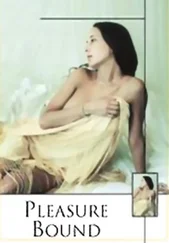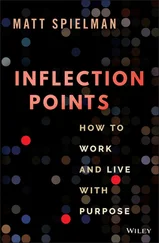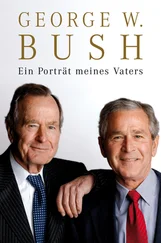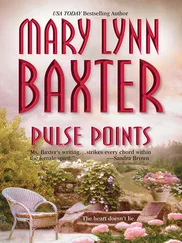In the early fall, I mentioned my conversation with Billy to Don Evans. He told me he and another Midland friend, Don Jones, had been attending a community Bible study. It met Wednesday nights at First Presbyterian Church. I decided to give it a shot.
Each week, we studied a chapter from the New Testament. At first I was a little skeptical. I had a hard time resisting the temptation to wisecrack. One night the group leader asked, “What is a prophet?” I answered, “That’s when revenue exceeds expenses. No one has seen one around here since Elijah.”
Soon I started to take the sessions more seriously. As I read the Bible, I was moved by the stories of Jesus’ kindness to suffering strangers, His healing of the blind and crippled, and His ultimate act of sacrificial love when He was nailed to the cross. For Christmas that year, Don Evans gave me a Daily Bible, a version split into 365 individual readings. I read it every morning and prayed to understand it more clearly. In time, my faith began to grow.
At first I was troubled by my doubts. The notion of a living God was a big leap, especially for someone with a logical mind like mine. Surrendering yourself to an Almighty is a challenge to the ego. But I came to realize that struggles and doubts are natural parts of faith. If you haven’t doubted, you probably haven’t thought very hard about what you believe.
Ultimately, faith is a walk—a journey toward greater understanding. It is not possible to prove God’s existence, but that cannot be the standard for belief. After all, it is equally impossible to prove He doesn’t exist. In the end, whether you believe or don’t believe, your position is based on faith.
That realization freed me to recognize signs of God’s presence. I saw the beauty of nature, the wonder of my little girls, the abiding love of Laura and my parents, and the freedom that comes with forgiveness—all what the preacher Timothy Keller calls “clues of God.” I moved ahead more confidently on my walk. Prayer was the nourishment that sustained me. As I deepened my understanding of Christ, I came closer to my original goal of being a better person—not because I was racking up points on the positive side of the heavenly ledger, but because I was moved by God’s love.

I realized something else. When Billy started answering questions that night in Maine, I was on my third glass of wine, after a couple of beers before dinner. Billy’s message had overpowered the booze. But that was not always the case. I had long been a social drinker. I liked to drink with friends, with meals, at sporting events, and at parties. By my mid-thirties, I was drinking routinely, with an occasional bender thrown in.
We had a saying in West Texas: “Last night he thought he was a ten, when in fact he was an ass.” That applied to me more than once. I like to joke around, but alcohol has a way of turning a quip or tease into a slash or insult. What seems funny with booze can sound so stupid later. One summer night we were having dinner in Maine after a great day of fishing and golf. I had worked up a thirst, which I quenched with multiple bourbon and Sevens. As we were eating, I turned to a beautiful friend of Mother and Dad’s and asked a boozy question: “So, what is sex like after fifty?”
Everyone at the table looked silently at their food—except for my parents and Laura, who glared at me with disbelief. The lovely woman let out a nervous laugh, and the conversation moved on. When I woke up the next day, I was reminded of what I had said. I instantly felt that morning-after remorse. After I called the woman to apologize, I started asking myself if this was really the way I wanted to lead my life. Years later, when I turned fifty, the good-natured woman sent a note to the Texas Governor’s Mansion: “Well, George, how is it?”
Laura saw a pattern developing, too. What seemed hilarious or clever to my friends and me was repetitive and childish to her. She wasn’t afraid to tell me what she thought, but she couldn’t quit for me. I had to do that on my own. At age forty, I finally found the strength to do it—a strength that came from love I had felt from my earliest days, and from faith that I didn’t fully discover for many years.
I haven’t had a drop of alcohol since that night at The Broadmoor in 1986. There’s no way to know where my life would have headed if I hadn’t made the decision to quit drinking. But I am certain that I would not be recording these thoughts as a former governor of Texas and president of the United States.
I’ve been asked if I consider myself an alcoholic. I can’t say for sure. I do know that I have a habitual personality. I was drinking too much, and it was starting to create problems. My ability to quit cold leads me to believe that I didn’t have a chemical addiction. Some drinkers are not as fortunate as I was. I admire those who use other methods to quit, such as the twelve-step process of Alcoholics Anonymous.
I could not have quit drinking without faith. I also don’t think my faith would be as strong if I hadn’t quit drinking. I believe God helped open my eyes, which were closing because of booze. For that reason, I’ve always felt a special connection to the words of “Amazing Grace,” my favorite hymn: “I once was lost, but now am found / was blind, but now I see.”

 he morning of June 12, 1999, was beautiful in Texas. The Rangers were in first place in the American League West. The Dow Jones Industrial Average stood at 10,490. Dad had just celebrated his seventy-fifth birthday by parachuting out of an airplane—successfully. And I was about to make a leap of my own.
he morning of June 12, 1999, was beautiful in Texas. The Rangers were in first place in the American League West. The Dow Jones Industrial Average stood at 10,490. Dad had just celebrated his seventy-fifth birthday by parachuting out of an airplane—successfully. And I was about to make a leap of my own.
After months of soul-searching and countless hours weighing the pros and cons, I was headed to Iowa, site of the first caucus in the 2000 presidential election. I was free from the anxiety of making the decision and eager to begin the journey. Laura and I kissed the girls goodbye, headed to the airport, and boarded a TWA charter bound for Cedar Rapids.
The flight was packed, mostly with journalists. They had filled hours of television and reams of newsprint debating, questioning, and analyzing whether I would run. Now they were going to get the answer. I decided to have a little fun with them. I had christened our plane Great Expectations . Shortly after we lifted off, I grabbed the microphone and announced, “This is your candidate. Please stow your expectations securely in the overhead bins, as they may shift during the trip and may fall and hurt someone—especially me.”
I often use humor to defuse tension, but I knew I was embarking on a serious undertaking. More than almost any other candidate in history, I understood what running for president would entail. I had watched Dad endure grueling months on the campaign trail, under the constant scrutiny of a skeptical press. I had seen his record distorted, his character attacked, his appearance mocked. I had witnessed friends turn against him and aides abandon him. I knew how hard it was to win. And I knew how much it hurt to lose.
I worried most about our seventeen-year-old daughters, Barbara and Jenna. I had learned that being the child of a politician is tougher than being a politician yourself. I understood the pain and frustration that comes with hearing your dad called nasty names. I knew how it felt to worry every time you turned on the TV. And I knew what it was like to live with the thought that any innocent slip could embarrass the president of the United States. I had gone through all of this in my forties. If I became president, my girls would be in college when I took office. I could only imagine how much more difficult it would be for them.
Читать дальше



 he morning of June 12, 1999, was beautiful in Texas. The Rangers were in first place in the American League West. The Dow Jones Industrial Average stood at 10,490. Dad had just celebrated his seventy-fifth birthday by parachuting out of an airplane—successfully. And I was about to make a leap of my own.
he morning of June 12, 1999, was beautiful in Texas. The Rangers were in first place in the American League West. The Dow Jones Industrial Average stood at 10,490. Dad had just celebrated his seventy-fifth birthday by parachuting out of an airplane—successfully. And I was about to make a leap of my own.









